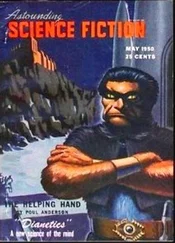“My God, don’t they teach you anything at that place?”
All three looked at him, stony of expression.
“Right. Well, the Materazzi rule Memphis and everywhere up to the Scablands and down as far as the Great Bight-which I can see you’ve never heard of either.”
“What’s Memphis like?”
“Wonderful. The greatest show on earth. There’s nothing you can’t get in Memphis, nothing that can’t be bought or sold, no crime that hasn’t been committed, no food they haven’t eaten, no practice… ” He paused. “… unpracticed. You’re in for a treat as long as they don’t kill you or forget you-and of course as long as you have money.”
“We don’t,” said Cale.
“Then you must get it. If you have no money in Memphis, there’s no point to you. And if there’s no point to you in Memphis, someone will soon find one for you.”
“What do you-”
“Enough questions. I’m sore and tired. We’ll talk in the morning.” He winked. “If I’m still here.” And with that IdrisPukke turned over and within five minutes was snoring.
They assumed he was joking as he so often and so puzzlingly seemed to be, but next morning when they woke up IdrisPukke had gone.
Captain Bramley was furious and gave all three boys a good kicking, and though it did make them feel considerably worse, it didn’t seem to make him feel better. Riba had rushed over and begged him to stop.
“Why would they help him to escape and stay behind themselves?” she pointed out desperately. “It isn’t fair!”
The boys, being old hands at unfairness, stoically kept their mouths shut and tried to keep their more tender portions away from the point of Captain Bramley’s boot. Fortunately for them he was a railer and a flailer rather than one of the skillful sadists they were used to. Unfairness was as familiar to them as water, not least because a beating was often preceded by a reference to the Hanged Redeemer’s direst warning that anyone who hurt a child would be better off being cast into the sea with a millstone around his neck. When the boys first arrived they were frequently told stories and parables about the kindness of the Holy Redeemer and his particular regard for the young, whose care and happiness were always being recommended to those around him. At first the fact that they were often beaten for no good reason prior to these homilies of love and kindness, and often afterward too, was the cause of bewildered resentment. Over the years, however, the contradictions ceased to exist and the words of comfort and joy went in one ear and out the other. They were just words, bereft of meaning to all concerned.
Having worked out his initial burst of rage on the boys, Bramley turned to his sergeant and corporal, who stood by with weary patience for their turn.
“You!” he shouted at the sergeant. “You big fat sack of shit. And you!” he said, looking at the corporal, a much smaller man. “You scrawny little sack of shit. Get ten of your best men and find that bastard IdrisPukke. And if you come back without him, and alive, you bring your dinner, both of you, because when I’ve finished with you you’re going to bloody need it.”
And with this he stamped off toward his tent.
“Keep interrogating the prisoners,” he yelled over his shoulder.
The sergeant let out a deep breath of disdain and patient irritation. “You heard what the man said, Corporal.”
The corporal approached the three boys, now backed against the wheel of the wagon, knees drawn up to protect themselves.
“Do you know anything about the escape of the prisoner?”
“No!” yelled back a furious but frightened Kleist.
“The prisoner says no,” reported the corporal calmly.
“Ask him if he’s sure, Corporal.”
“Are you sure?”
“Yes, I’m sure,” said Kleist. “Why, in God’s name, would he tell us where he was going?”
“He has a point, Sergeant.”
“Yes,” said the sergeant wearily. “Yes, he does.” There was a pause.
“Mount up Seven Platoon and wake up Scout Calhoun. We’ll be on our way in ten minutes.”
With that the soldiers around them dispersed and the boys and Riba were left alone as if nothing had happened. She knelt down beside them and looked at them with heartbreaking pity-an emotion, it has to be said, that they barely appreciated. Firstly, they were more concerned with their own bruises, and secondly, they were not capable of understanding that she could actually feel for their pain. Except for Vague Henri, perhaps, who when they had been together for the week in the Scablands had stripped to the waist to wash when they’d come across one of its few streams. He had caught her surreptitiously looking at his back and the numerous scars and gouges and weals that covered it. Even though he had never encountered feminine sympathy before, he was, in a confused way, it’s true, alive to its strange power.
Then the camp itself started to move. The prisoners were fed on porridge and they were off. Before she was taken away, Riba whispered excitedly that in two days they would be in Memphis. The three of them were unable to share her enthusiasm, given the uncertainty of the welcome that awaited them.
“The old guy,” said Kleist to Riba, “the one we were about to rescue. Is he dead?”
“I don’t think so.”
“Try to do something useful and find out,” said Kleist.
Her eyes opened wide at this rebuke and started to mist.
“Leave her alone,” said Vague Henri.
“Why?” said Kleist. “They’re going to hang us if he dies-so I don’t see how she can be riding to Memphis on her fat arse and not finding out what we need to know.”
The mistiness was instantly replaced by indignation.
“Why do you keep saying that I’m fat? I’m supposed to be like this.”
“No more arguments,” said Cale irritably. “Kleist-leave her alone. You-find out what’s happened to the old man.”
Riba looked at Cale, shocked and angry, but said nothing.
“March or die! March or die!” The corporals cried out, the threat no longer significant, because this was called every time they struck camp and moved on. The cart to which the boys were tied lurched and moved on, and they left Riba behind, staring at them furiously. Later that day, however, she walked by them, nose still clearly out of joint, and said as if it were a matter of no possible consequence:
“He’s still alive.”
The Scablands came to an end quite suddenly within a hundred meters. They moved from grit, ash, stones and scruffy hillocks to a green and fertile plain already spotted with farms, houses and the huts of workers. People emerged from behind hedges and clumping barrows to take a look at them. Not for long, though-the sight of the soldiers, baggage and prisoners was enough to make them curious, but after a gawp of twenty seconds or so everyone but the children went back to what he was doing.
For the rest of the day and all the next the number of houses and people grew denser. First villages, then towns, then the suburbs of Memphis itself. But it was still two hours more before they saw its great citadel.
They had stopped because of traffic jams, and one of the corporals, seeing them stare, amazed, at the city, moved his horse forward.
“Those walls are the greatest in the world-fifty foot thick at the weakest and twice five miles around.” The boys looked at him.
“That’d be ten miles, then,” said Kleist.
The corporal’s face fell and he spurred the horse onward.
The last two miles up to the great gates of the Citadel of Memphis consisted entirely of markets of one kind or another. The noise and the smells and the colors left the boys wide-eyed and almost overwhelmed with delight. Any traveler would have considered it an experience to take with him until the Day of the Dead-but for three boys whose staple food was something called dead men’s feet, varied by an occasional rat, this was heaven itself, only a heaven rich and strange beyond imagining. Each drawn-in breath came with the smell of cumin and rosemary and along with it the sweat of a herder selling goats, a housewife dashed with oil of tangerine, a whiff of urine and the smell of roses. There were calls and cries from every direction: the squawk of cooking parrots, the miaow of the gourmet’s favorite-the Memphis boiling cat-the cooing of sacrificial doves, the bark of dogs raised in the hills around the city for roasting on holidays; pigs squealed, cows groaned, and a huge shout went up as a pike about to be gutted flapped its way loose from a fishmonger and flailed its way to freedom in a sewer. A cry of tragic loss from the monger, derisive laughter from the crowd.
Читать дальше











